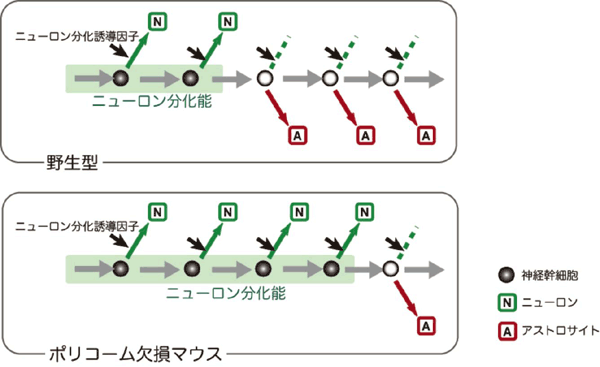Polycomb Limits the Neurogenic Competence of Neural Precursor Cells to Promote Astrogenic Fate Transition
During neocortical development, neural precursor cells (NPCs, or neural stem cells) produce neurons first and astrocytes later. Although the timing of the fate switch from neurogenic to astrogenic is critical for determining the number of neurons, the mechanisms are not fully understood. Here we show that the polycomb group complex (PcG) restricts neurogenic competence of NPCs and promotes the transition of NPC fate from neurogenic to astrogenic. Inactivation of PcG by knockout of the Ring1B or Ezh2 gene or Eed knockdown prolonged the neurogenic phase of NPCs and delayed the onset of the astrogenic phase. Moreover, PcG was found to repress the promoter of the proneural gene neurogenin1 in a developmental stage-dependent manner. These results demonstrate a novel role of PcG: the temporal regulation of NPC fate.
Program member
Yukiko Gotoh (Institute of Molecular and Cellular Biosciences)

Proposed model of the role of PcG proteins in the temporal fate regulation of NPCs. N, Neuron; A, Astrocyte.
